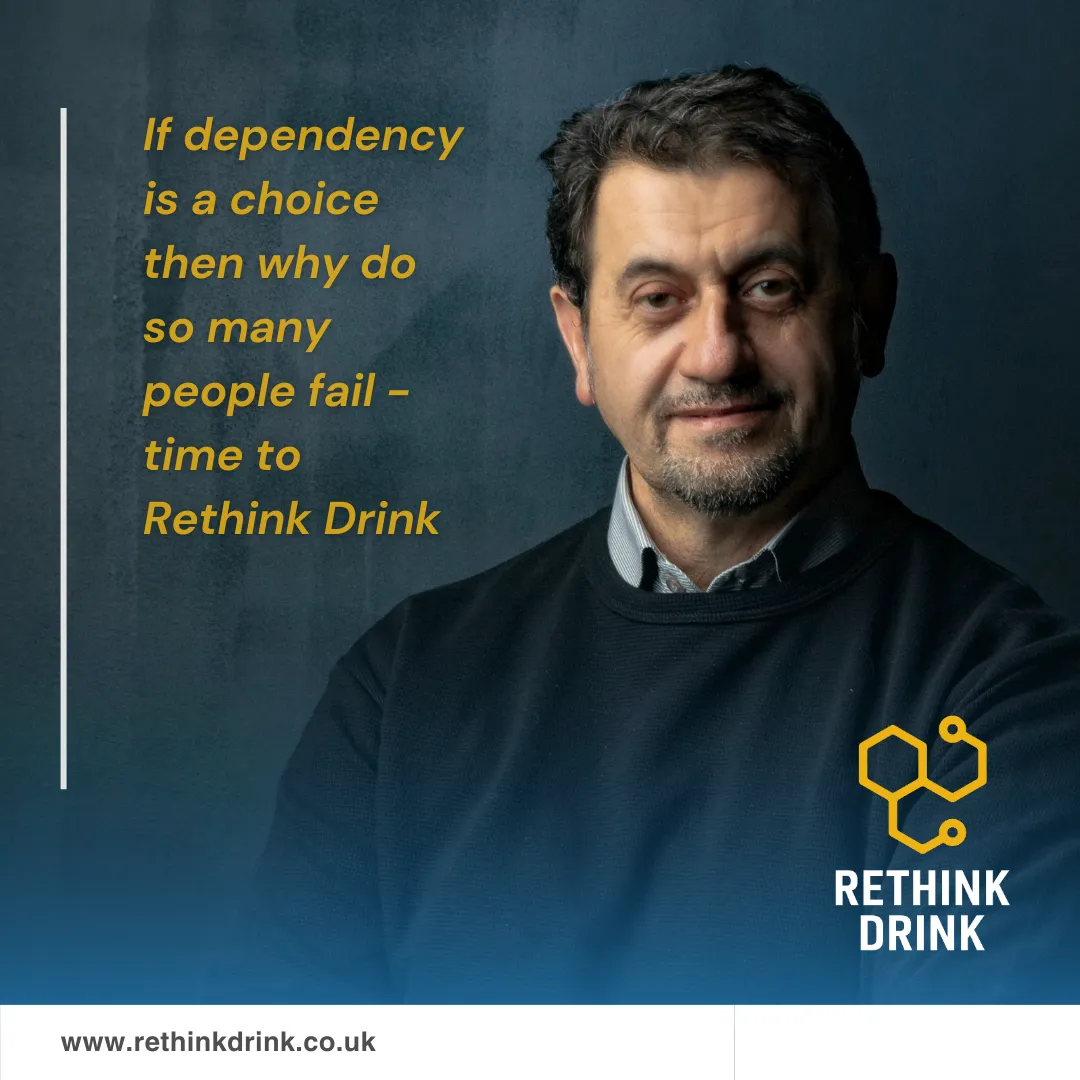
Alcohol and Society — Stigma, Science, and the Truth We Avoid
Alcohol and Society - Stigma, Science, and the Truth We Avoid
Key Takeaways
Alcohol is deeply embedded in our culture, yet society quickly stigmatises those who struggle with it.
Outdated beliefs around addiction lead to shame, isolation, and barriers to effective treatment.
Alcohol use disorder (AUD) exists on a spectrum - not everyone affected hits "rock bottom".
The brain’s reward system plays a major role in addiction, not just personal willpower or discipline.
Evidence-based treatments like The Sinclair Method challenge traditional recovery narratives and offer hope.
Our society has a complicated relationship with alcohol. It’s celebrated, normalised, and woven into nearly every occasion: births, business meetings, romantic dates, parties. Yet when someone develops a problem with this same substance, the reaction changes completely. They’re judged, isolated, and stripped of empathy.
The mainstream ideas about alcoholism and its treatment reinforce this view: “tough love”, letting someone hit rock bottom, isolating them. I once heard someone say: if punishment cured addiction, there would be no addicts in the world. Living with addiction is punishment enough.
This raises important questions: Is it alcoholism or alcohol use disorder? Is it a disease or a personal weakness? Is it hereditary, or learned behaviour? These may sound like semantics, but they shape stigma, diagnosis, recovery, and even access to effective but lesser-known treatments.
What We Picture When We Hear “Alcoholism”
When you hear the word alcoholism, what image comes to mind?
Most people picture someone who has lost everything because of drinking, or maybe a homeless person living on society’s margins. Unless you are currently struggling yourself, you probably don’t identify with those images. Maybe you feel pity, or even disdain.
That’s the power of stigma. Social and media narratives tell us alcoholism looks a certain way. But the truth is, alcoholism is a chronic, progressive condition. Nobody wakes up one day trembling for their first morning drink. We all start the same way - having drinks in family or social settings.
Alcohol, like any drug, hijacks the brain’s reward system. All you need is a nervous system, drink often enough, reinforce the behaviour - and dependency can develop.
Why Some Lose Control and Others Don’t
Why do some people spiral into addiction, while others seem to drink all their lives without trouble? Is it just about discipline?
The answer is more complex. Alcohol triggers the release of endorphins, giving us a sense of well-being. Our brain’s reward system is designed to reinforce behaviours essential for survival - eating, affection, sex. Alcohol, however, produces an exaggerated version of that reward. It turns a simple neural path into a superhighway. What began as a drink to unwind can, over time, become a compulsion.
We also know there’s a genetic component. People with a family history of alcohol problems may have brain chemistry that makes them more vulnerable. For them, alcohol may produce an intense euphoria, reinforcing the behaviour even faster.
But genes are only part of the picture. Drinking habits, emotional coping, trauma, and mental health also play key roles.
Risk factors include:
Genetics or a family history of alcoholism
Early exposure to alcohol
Co-occurring mental health conditions like depression or anxiety
Growing up in an environment where drinking is normalised
Using alcohol to cope with stress, loneliness, or trauma
Why “Alcoholism” Isn’t the Whole Picture
This is where language matters.
When we say alcoholism, most people imagine someone at rock bottom - constant drinking, withdrawal symptoms, life in ruins. But the term alcohol use disorder (AUD) covers a much broader spectrum, including:
People who notice early warning signs
Those who can’t stop once they start
People experiencing blackouts
Those whose personality changes when they drink
People who wake up anxious or depressed after drinking
Those drinking more frequently than before
People facing health, relationship, financial, or work problems
These are all signs of a problematic relationship with alcohol. Left untreated, dependency deepens. That’s why it’s so important to move away from outdated ideas of who “counts” as an alcoholic.
This isn’t about weakness or failure - it’s about neurological changes that affect motivation and behaviour.
Time for a New Understanding
It’s time we admit that, as a society, we’ve got alcohol all wrong.
“Once an alcoholic, always an alcoholic” is not a scientific truth. It’s an outdated belief that fuels shame and keeps people stuck. Abstinence isn’t the only option. In fact, The Sinclair Method offers a powerful alternative, grounded in neuroscience.
TSM uses a medication called Naltrexone to block the endorphin reward from alcohol. Over time, this extinguishes the habit - not by punishing the person, but by changing the brain’s response to drinking.
This approach is:
Evidence-based
Gradual - no requirement for sudden abstinence
Empowering - it restores choice
Discreet - it can be done privately and without labels
Unlike many recovery programmes, The Sinclair Method doesn’t demand hitting rock bottom. It’s available to anyone ready to make a change - whether they drink a few too many on weekends or have a daily habit they can’t shake.
If you're curious about whether TSM could work for you, book a free screening call with one of our trained coaches. We’re here to help you explore your options - without shame, and without pressure.
Replacing Stigma with Science
Recovery isn’t about rejecting who you are. It’s about freeing yourself from what no longer serves you and reclaiming your strength.
It’s time to replace stigma with science, fear with understanding, and outdated dogma with a clear, evidence-based path forward.
We believe in change - not just for individuals, but for how our entire society views alcohol and those who struggle with it.